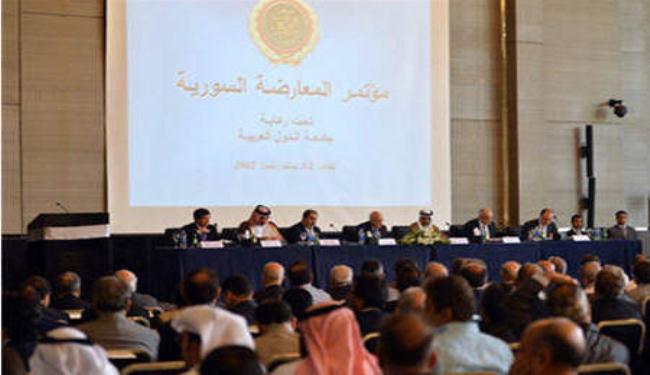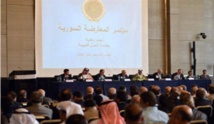Nashar also forecast that the National Coalition, which has still not taken a definitive decision, would similarly not show up.
Friday's announcement reiterates a statement by SNC president George Sabra in October that the group had take a "firm decision" not to attend the talks.
At the time, Sabra also said the SNC would withdraw from the National Coalition if it decided to attend.
The SNC, which is one of the most important members of the opposition, has long said it will not negotiate until President Bashar al-Assad's regime is toppled.
After months of delays, a January 22 date for the peace talks has been set, but doubts remain about whether the conference will go ahead.
The talks were originally scheduled to be held in the Swiss city of Geneva but have been moved to nearby Montreux.
Nashar said the decision was taken after many meetings, including with the "Friends of Syria" grouping of states that support the opposition, UN-Arab League envoy Lakhdar Brahimi and the Russian foreign ministry.
"The whole idea of Geneva is flawed. It is based on bridging the demands of the Syrian regime and the opposition, placing them on an equal footing. We reject this," said Nashar.
"There is nothing the international community has to offer that would make us revise our earlier decision."
The SNC has long held the view there should be no talks without guarantees they would lead to Assad's fall.
"And the message we are getting is that whether Assad stays or goes will be up to the Syrians to decide. The United States supports our demand that he must fall but the Russians do not accept this as a precondition," said Nashar.
Asked about how the decision might affect the Coalition's thinking, he said: "The Coalition will not end up going. Not only is the Council against participation, there are many other opponents within the Coalition who reject the talks and will vote against going."
The Coalition is set to hold its next general assembly meeting in Istanbul on Sunday and Monday.
"Also you have to look at what the revolutionaries on the ground are saying: they too reject Geneva," said Nashar.
"What this means is there will be no Geneva at all," he added.
--------------------------------------------------------------------------------------------------
Friday's announcement reiterates a statement by SNC president George Sabra in October that the group had take a "firm decision" not to attend the talks.
At the time, Sabra also said the SNC would withdraw from the National Coalition if it decided to attend.
The SNC, which is one of the most important members of the opposition, has long said it will not negotiate until President Bashar al-Assad's regime is toppled.
After months of delays, a January 22 date for the peace talks has been set, but doubts remain about whether the conference will go ahead.
The talks were originally scheduled to be held in the Swiss city of Geneva but have been moved to nearby Montreux.
Nashar said the decision was taken after many meetings, including with the "Friends of Syria" grouping of states that support the opposition, UN-Arab League envoy Lakhdar Brahimi and the Russian foreign ministry.
"The whole idea of Geneva is flawed. It is based on bridging the demands of the Syrian regime and the opposition, placing them on an equal footing. We reject this," said Nashar.
"There is nothing the international community has to offer that would make us revise our earlier decision."
The SNC has long held the view there should be no talks without guarantees they would lead to Assad's fall.
"And the message we are getting is that whether Assad stays or goes will be up to the Syrians to decide. The United States supports our demand that he must fall but the Russians do not accept this as a precondition," said Nashar.
Asked about how the decision might affect the Coalition's thinking, he said: "The Coalition will not end up going. Not only is the Council against participation, there are many other opponents within the Coalition who reject the talks and will vote against going."
The Coalition is set to hold its next general assembly meeting in Istanbul on Sunday and Monday.
"Also you have to look at what the revolutionaries on the ground are saying: they too reject Geneva," said Nashar.
"What this means is there will be no Geneva at all," he added.
--------------------------------------------------------------------------------------------------









 Home
Home Politics
Politics











